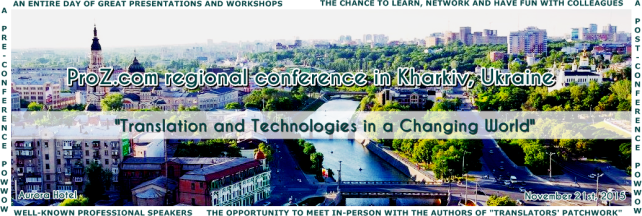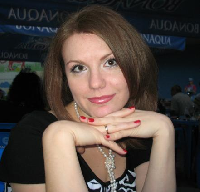
Nancy’s e-book won this year’s award for best translation-related book.
As promised, I’m happy to present the first installment of our guest blog post series featuring recipients of this year’s ProZ.com community choice awards. First up is Nancy Matis, who won the award for best translation-related book for her e-book entitled How to manage your Translation Projects. The print version, available in French, can be purchased here.
Nancy has been involved in the translation industry for about 20 years, working as a translator, reviser, technical specialist, project manager and teacher, among other roles. She currently manages her own translation company based in Belgium and teaches translation project management at four universities. She has conducted seminars at numerous universities on this subject across Europe, and has also been involved in designing and evaluating training materials for future translators and project managers.
In this guest post, Nancy discusses some techniques she uses in teaching translation project management to her students, and explains why this is a useful skill for project managers and translators alike.
 Teaching Translation Project Management (TPM) is really thrilling. One of the aspects I most enjoy is that the majority of my students are highly interested in this topic. The challenge lies in the breadth of the subject and the wide variety of translation requests it encompasses. Every project is different, every company (whether an end client or a translation agency) has its own management methods, and every project participant has their own concerns depending on the role they play.
Teaching Translation Project Management (TPM) is really thrilling. One of the aspects I most enjoy is that the majority of my students are highly interested in this topic. The challenge lies in the breadth of the subject and the wide variety of translation requests it encompasses. Every project is different, every company (whether an end client or a translation agency) has its own management methods, and every project participant has their own concerns depending on the role they play.
The way I approach TPM with MA students is to describe the theoretical life cycle of a translation project, and in-between, to add as many counter examples as I can. The goal is not to teach them just one way of managing their projects, but to open their minds to this vast area while pushing them to know how to adapt to any situation, as project managers or translators, and as employees or freelancers.
TPM is not only useful for future project managers. All participants in a translation project have to manage their own tasks. That’s why it’s essential to include concepts that apply to all of them and to target explanations at specific job profiles.
For instance, the subject that students find the most appealing in the main is pricing. I usually start by showing them several examples of price grids and explaining that, as project managers working in translation agencies, they will probably have to refer to grids to prepare new quotations. This gives me an opportunity to illustrate any rate variations based on source and target languages as well as the project domain (legal, medical, economics, etc.), style (technical, marketing, etc.) and category (documentation, software, multimedia, etc.), and the tasks involved (not only translation and revision, but also desktop publishing, illustration mock-up, testing, etc.) according to their level of
complexity. From there, we explore how translation companies establish their rates and how these future professionals can define their own and present them in a customised price grid. We talk about prices based on estimated costs and briefly introduce the notion of gross margin. Afterwards, we check in detail how to set up rates based on expected productivity. At this stage, we discuss profitability, which gives us the chance to think about what is and is not acceptable. Depending on how much time I have with the class, we can then go as far as drawing up tables with multiple productivity metrics, several expected hourly (or daily) fees and the resulting word rates. We can do this for translation alone, deciding whether to integrate the use of CAT tools (or even machine translation) or not, or we can include other linguistic steps in the calculation, such as revision and LQA (linguistic quality assurance). Sometimes, we repeat the process for some technical tasks, for example DTP (desktop publishing), focusing on rates for units such as pages and illustrations. We can also end the topic by discussing when we should apply extra charges and increase unit rates, or even debating whether the price reductions some clients require are legitimate.
The goals of this approach are multiple:
- Make the students understand how rates are set up in translation companies.
- Prepare them to fix rates as freelancers (even when subcontracting to others).
- Enable them to decide if they can accept the rates imposed by some clients or translation agencies.
During the course, I teach most of the other TPM topics (project analysis, quotation, scheduling, launching, monitoring, closing, etc.) in the same way, i.e. from various perspectives to ensure I cover as many roles in as many project types as possible. I don’t generally limit myself to successful cases since, whenever possible, I share my experience of some project failures too so we can analyse how these situations could have been avoided. This helps students become aware of the importance of risk management. Examining a range of cases is certainly the most enriching side of teaching project management. As I work in parallel on new projects in my other day job, I can constantly update the examples and exercises I give my students. That’s why the Translation Project Management programme is constantly evolving.

Nancy Matis, author of this guest post
Thanks for sharing this post with us, Nancy!
For those interested in learning more about this topic, be sure to check out Nancy’s website, which is dedicated to the subject of translation project management, at: http://www.translation-project-management.com/
The How to manage your Translation Projects e-book is also available for purchase in the ProZ.com books section: http://www.proz.com/books/91/How-to-manage-your-translation-projects
Stay tuned for upcoming guest blog posts featuring winners of the 2015 ProZ.com community choice awards. Feedback on this blog post and suggestions for future posts can be made below or tweeted to @ProZcom.
 From December 1st until December 3rd, ProZ.com, Dutch translator and copywriter Pieter Beens and the rest of the ProZ.com community joined forces in a ‘Giving Tuesday’ year-end donation drive and collected over $1,800 USD to be donated to Books For Africa, Concern Worldwide and SOS Children’s Villages. In turn, ProZ.com matched dollar for dollar the collected amount and over $3,600 USD will now benefit these three non-profit organizations.
From December 1st until December 3rd, ProZ.com, Dutch translator and copywriter Pieter Beens and the rest of the ProZ.com community joined forces in a ‘Giving Tuesday’ year-end donation drive and collected over $1,800 USD to be donated to Books For Africa, Concern Worldwide and SOS Children’s Villages. In turn, ProZ.com matched dollar for dollar the collected amount and over $3,600 USD will now benefit these three non-profit organizations.











 Teaching Translation Project Management (TPM) is really thrilling. One of the aspects I most enjoy is that the majority of my students are highly interested in this topic. The challenge lies in the breadth of the subject and the wide variety of translation requests it encompasses. Every project is different, every company (whether an end client or a translation agency) has its own management methods, and every project participant has their own concerns depending on the role they play.
Teaching Translation Project Management (TPM) is really thrilling. One of the aspects I most enjoy is that the majority of my students are highly interested in this topic. The challenge lies in the breadth of the subject and the wide variety of translation requests it encompasses. Every project is different, every company (whether an end client or a translation agency) has its own management methods, and every project participant has their own concerns depending on the role they play.